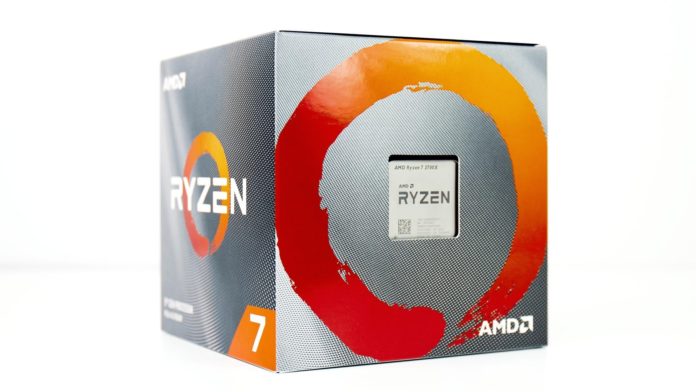AMD’s Ryzen 3000 (Matisse) CPUs hit the market a few months back to take on the ageing 14nm Coffee Lake lineups from Intel, and they’ve been doing exceptionally well. The Ryzen 5 3600 and the Ryzen 7 3700X are the two mains stars of the show becoming the bestselling CPUs across many markets across the world. In this post, we compare the Ryzen 7 3700X to Intel’s Core i7-9700K and the Core i9-9900K and see if Intel’s claim of “real-world performance” holds up. We’ll go over the architectural improvements over Zen+ first and then dive into the benchmarks. Let’s get to it!
7nm Zen 2: The Architecture Powering the Ryzen 3000 Processors
The Zen 2 architecture builds on the design of the existing Zen+ architecture and makes some key improvements, boosting the instructions per cycle (IPC), on-chip bandwidth, utilization, security, etc. This directly translates into real-world performance especially gaming where the older Ryzen 2000 processors failed to impress. The major architectural changes can be summed up as:

- 256-bit single-op floating point (AVX-256) for notably stronger performance in creative workloads.
- Doubled Micro-Op cache size (now 4K) to increase throughput by preventing
- New TAGE branch predictor, with larger L1 and L2 BTBs, to increase throughput by reducing stalls from mispredicts.
- A third address generation unit (AGU), which keeps the execution engine more reliably fed with data in DRAM.
- Improved load/store bandwidth throughout the device, which increases throughput by keeping more data on-chip.
- A doubled L3 cache size to 32MB per CCD, which reduces effective memory latency by up to 33ns—excellent for games.
- Improved fetch and pre-fetch capabilities, arming the execution engines more readily with needed data.
- Improved SMT fairness for ALU and AGU schedulers, reducing thread contention and throughput.
- A larger 180-entry register file, providing the CPU more immediate access to more working data.
- Hardware mitigation against speculative store bypass (Spectre V4), expanding the strong security profile of “Zen(+).”
- LEADING TO: An overall IPC uplift of approximately 15% generationally.
Chiplet Based SoC Topology

One of the main driving factors behind the Ryzen 3000 design is the use of the
AMD Game Cache and Precision Boost 2
As already discussed, one of the main goals of the 3rd Gen Ryzen lineup was to offer comparable gaming performance relative to the contemporary Intel Coffee Lake parts, and AMD Game Cache was instrumental in making this possible. Zen 2 comes with an increased 32MB of L3 cache per CCD, enhancing in-game frame rates by a significant degree. According to AMD’s internal testing, this alone helped elevate the average frame rates by 21% at 1080p.

A while back, AMD’s Robert Hallock claimed that unlike Intel’s chips, AMD processors aim for the highest boost clock on as many cores as possible. That’s achieved using Precision Boost. The Ryzen 3000 CPUs boast Precision Boost 2 which is an opportunistic boost algorithm that drives loaded cores to the highest possible frequency until a limit is encountered: socket power, VRM thermal limit, VRM current limit, or max

AMD claims that under lower temps, the Zen 2 chips run at higher (average) clocks, meaning the better your thermal solution, the better the performance (to an extent obviously). However, this is effective only to a certain exten and the overall boosts are rather meager. This is demonstrated below:

AMD Ryzen 7 3700X: 1080p Gaming Benchmarks
TestBench:
- Motherboard: ASRock X570 Taichi/Gigabyte Z390 AORUS MASTER
- GPU: GeForce RTX 2080
- Memory: Trident Z Royal 16GB
- HDD: WD Black 4TB
- PSU: Corsair HX1000i
- Windows 10 Build 1903
The Division 2 (DX12)

Shadow of the Tomb Raider (DX12)

Deus Ex: Mankind Divided (DX12)

Metro Exodus (DX12)

Ashes of the Singularity (DX12)

AMD Ryzen 7 3700X: 1440p Gaming Benchmarks
Assassins’ Creed Origins (DX11)

The Division 2 (DX12)

Deus Ex: Mankind Divided (DX12)

Metro Exodus (DX12)

Ashes of the Singularity (DX12)

At 1440p, the deltas are small and the Ryzen 7 3700X looks pretty viable. There’s a notable gap in Ashes of the Singularity where the Coffee Lake-based i7 and i9 chips lead by a decent margin. The 3700X leads in Assassins’ Creed Origins and performs admirably in Metro Exodus. The other games see the three processors produce roughly frame rates roughly in the middle.
Productivity and Synthetics
Cinebench 15

In Cinebench 15, the Ryzen 7 3700X beats both the Core 9-9900K as well as the i7-9700K in the multi-threaded test but in the single-threaded benchmark, is slightly behind. The deltas are close to negligible though, and in contrast, the Zen 2 chip is approximately 25% faster (than the i7-9700K) in the multi-threaded test, while costing nearly the same.
Cinebench 20

The same result once again, only the delta between the Zen 2 and the Coffee lake CPUs is even wider. In the single
CPU Mark

CPUMark by Passmark gives a decent measure of real
CPU-Z

The CPU-Z
7-zip

7-zip loves “moar cores” and it’s quite apparent here. The Ryzen 7 nets faster compression as well as decompression speeds, while being a notable 30-40% faster than the Core i7-9700K in the latter.
Kraken

Kraken is a good indicator of browsing performance and seems to favor a high IPC and as such the i9 is in the lead.
x264 HD

3DMark Timespy

PC Mark 10

Conclusion: Is the Core i9-9900K Obsolete?
Well, honestly, those of you who have the Core i9, keep it. There’s not a whole lot of difference in everyday tasks. However, if you are planning to buy one, then don’t. The Ryzen 7 3700X offers a much better value, especially when it comes to content creation, video editing, encoding, and rendering. In gaming, the performance gap is close to negligible and as such doesn’t really make the Intel parts any less relevant at the current pricing.
Read more:


